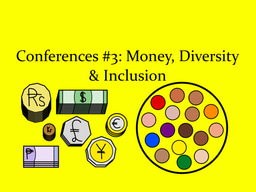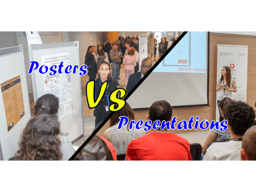
About my ramblings
The PhD experience is a whirlwind. Emotions flip between joys of exciting results and the pits of thesis writing. For me, navigating these ups and downs was made significantly easier by talking to a variety of PhD students, postdocs and academics. While each person had a very different PhD experience, everyone I spoke to had at least a couple of relatable experiences and nuggets of advice.
In this series of blog posts I will share my own experiences of my PhD and (so far short) early career in academia. I hope that each post will detail at least one or two interesting experiences (and perhaps even useful!) to all PhDs and early career researchers. However, I am under no illusion that everything written will be relatable to everyone who reads them (we are all different after all!). These are my thoughts – my ramblings – based on my academic experiences to date. That said, I have thought carefully about what I have written. I truly hope that I avoid writing something unhelpful to those from different backgrounds to my own. However, if something I have written is somehow shortsighted, then please comment on the post or email me directly (I take criticism well). Better still - write your own blog post!
How to conference (part 1)
Conferences are great fun and are certainly highlights of the research profession – allowing you to learn about (and share your own!) cutting-edge research and put faces to the names you read at the top of papers. However, as a new PhD student, conferences can also be daunting, overwhelming and are often costly on your research budget.
Here I am sharing my thoughts and experiences from attending conferences big and small. This, and the follow up, posts are aimed at early stage PhD students who may barely know what a conference is (which was me when I started my PhD!). I hope these posts will give you an insight of what to expect from a conference such that you can make the most of the personal and professional benefits on offer. I am upfront about how conferences can be extremely tiring and stressful, but I hope you will also see why they are fun events and great experiences!
They aren’t a holiday
Every conference I have attended so far has been exhausting. The run up to a conference has typically been incredibly busy, no matter how much I had planned otherwise. Generally I would be busy with preparing my posters and/or presentations. On occasion, I would be attempting to collect last minute data since what I wrote in the abstract wasn’t as easy as I first thought.
The conference days themselves are full days, dawn-till-dusk, fuelled by coffees, teas, snacks and the like. It is possible that you will be interacting and talking to others non-stop from breakfast through to evening drinks in the local bar or pub. Add in your 10 hour flight from the day before and you find yourself being tired most of the time. Given your tiredness, staying awake in the conference talks – perhaps the main reasons you’ve gone to the conference – can be a challenge. Taking some form of notes certainly helps keep you awake...
They are (a bit of) a holiday
Having said the above, I found conferences to be one of the most enjoyable aspects of my PhD – thanks to the people I met and the places I was able to visit. You can easily make new friends with like-minded people who you will see at future conferences and may even work with one day. You have the opportunity to see new cities and have a local (scientist) introduce you to the local delicacies – something you would pay through the nose for through an “experience website”. For me, a particular highlight is the fact that I can often slip in a holiday before or after a conference. To my mind, this certainly made up for the fact that PhD students are underpaid given their skills level and the importance of their work.
Small vs Big conferences
(As it will become evidently clear) my favourite type of conferences are smaller, more intimate conferences. Typically, these are either national events for your broad research field, or are international but focused on a more niche research area. In the first year of my PhD I attended the British Liquid Crystal Society’s (BLCS) annual meeting at Sheffield Hallam University (Sheffield, UK). As the society’s name suggests, this conference was aimed at UK-based researchers in the field of liquid crystals, however a number of international researchers from as far away as California attended too. Why they did this? – As they knew it would be an opportunity to reconnect with the UK liquid crystal’s community. I think the fellow PhD students from my group would agree that the best thing about the BLCS conferences, (and indeed those organised in conjunction with the German Liquid Crystals Society, was that they are all extremely friendly events where new-PhDs can meet and casually chat with well-established group leaders. Moreover, while attending various BLCS events I felt as though I was becoming part of the liquid crystals research communities. For instance, I was able to participate in BLCS’s annual general meetings, not just as a casual observer waiting for dinner, but actively sharing my viewpoint – as a PhD student – on the management and future direction of the society.
The very relaxed and informal nature of the smaller conferences I have attended to date offered plenty of opportunities to learn more about the research profession – the good and the bad. Breaks, dinner, post-dinner drinks and the conference dinner are all opportunities to speak to new people. The post-dinner drinks at small conferences are in particular useful occasions where any remaining barriers between established academics and new PhD students are broken down further over a couple of drinks (alcoholic or otherwise). All these opportunities to speak to a variety of people allow you to gain a deeper insight to the research of other groups and the differences in how they function. If you are to continue a career in academia, then this knowledge can certainly help you to identify the groups which perform research interesting to you and which you feel you could fit into well.
By comparison, the networking opportunities at larger conferences members are comparatively limited – especially if you know few people from other research groups before you attend. I find that at larger conferences, members of the same research groups tend to stick together and will mix less with others. Additionally, at large conferences I feel established academics are more inclined to catch up with one another over meeting new people.
During my PhD I found that smaller conferences were fantastic opportunities for me to grow comfortable with presenting my work through posters and oral presentations. While you can never guarantee that someone will ask you a question or make a comment with an agenda of promoting their own work or with the aim of undermining your work (I have thankfully never had this experience yet – but I have seen it!), such questions and comments are, in my experience, less common at smaller conferences.
While it is not typical for a PhD to attend a conference alone from their group, this is something that is possible at a smaller conference given the friendlier atmosphere. In fact the occasions where I attended conferences by myself were much more productive conferences in terms of networking as I was forced to spend time talking to new people!
All that being said, I certainly did enjoy and gain a lot from larger conferences – they just perhaps satisfy a different purpose. At larger conferences the range of research topics you can learn about is on a different level compared to smaller conferences. Take for instance the bi-annual Materials Research Society meetings in the US. At the upcoming meeting in Phoenix there are 60 symposia each focused on a different topic spanning all of materials science. Larger conferences such as this require a bit of preparation so you can successfully navigate the many parallel sessions – ensuring you hear about all the research that interests you. The reward, however, is a great opportunity to diversify your knowledge and for you to potentially come up with one or two completely novel ideas of how you can advance your own research or ideas which you may develop into a fellowship proposal for your next career stage. The other advantage of the larger international conferences is that you are likely to have the opportunity to visit and experience a new city in a new country – an opportunity I would always jump at!
Next time…
With conferences, there is just so much to write about! My next post will talk about posters vs presentations, money matters and diversity issues. If you have any comments/suggestions/critiques about what I have written then please leave a comment or send me an email. I hope this post has been useful to you!



Please sign in or register for FREE
If you are a registered user on Research Communities by Springer Nature, please sign in
Thanks so much for your post, Devesh. Your 'ramblings' are a great insight into conferencing - looking forward to the next in the series!